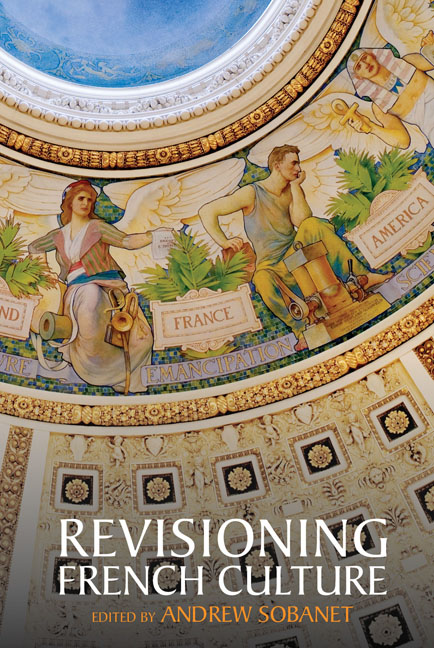Book contents
- Frontmatter
- Contents
- Introduction
- I France in Perspective: The Hexagon, Francophonie, Europe
- II Visions of the World Wars, or L’Histoire avec sa grande hache
- III Refractions and Reflections
- IV French Literature, Revisioned
- V The Subject in Focus
- VI Philosophical Lenses
- VII Coda
- Contributors
- Acknowledgments
- Index
12 - Mallarmé Médiéval
- Frontmatter
- Contents
- Introduction
- I France in Perspective: The Hexagon, Francophonie, Europe
- II Visions of the World Wars, or L’Histoire avec sa grande hache
- III Refractions and Reflections
- IV French Literature, Revisioned
- V The Subject in Focus
- VI Philosophical Lenses
- VII Coda
- Contributors
- Acknowledgments
- Index
Summary
Fellow poets with whom Stéphane Mallarmé shared his epic last poem, ‘Un Coup de dés jamais n’abolira le hasard,’ were his best audience. André Gide, who was vacationing in Florence at the time of its appearance (May 1897), wrote to his mentor to praise the poem’s ‘literary boldness … like a strangely jutting high promontory, beyond which there is nothing but night—or the sea and the sky full of dawn.’ Yet, for Mallarmé, the version Gide had read was not bold enough. He expressed appreciation that the editors of Cosmopolis, a cultural magazine with headquarters in London and local offices in Berlin and Paris, had taken the risk of publishing such an unusual work. The poet was dissatisfied, however, with the layout, and promised to send Gide the first suitable proof of his revision, which was already in the process of being published by art dealer Ambroise Vollard and the well-established printer Firmin Didot. This second edition of ‘Un Coup de dés,’ Mallarmé assured Gide, would feature a proper layout. Lines of text crowded together on a single page of Cosmopolis would be spread across two pages, the separation rendering visually, and not just semantically, the meaning of the words. The phrase ‘cadavre par le bras … écarté du secret qu’il détient,’ which occupied a single folio of the poem's first printing, would, in the full edition, be physically laid across two folio pages, the word écarté designating the very process of thrusting apart.
More startling, Gide would see in the full twenty-page version of ‘Un Coup de dés,’ when Mallarmé describes a boat about to sink amid the scattered debris of a shipwreck, that the typographical layout, the actual words, displayed across two pages, would dip across their full breadth and depth from left to right. The words will go down with the boat. ‘The vessel lists,’ he promises, ‘from the top of one page to the bottom of the other.’
In an even more stunning coincidence of typographical layout with meaning, Mallarmé promised that on the final page of the authorized version of ‘Un Coup de dés,’ Gide would see that ‘the constellation will take the shape, according to precise laws and as much as is possible in a printed text, fatally, of a constellation.’
- Type
- Chapter
- Information
- Revisioning French Culture , pp. 173 - 186Publisher: Liverpool University PressPrint publication year: 2019



